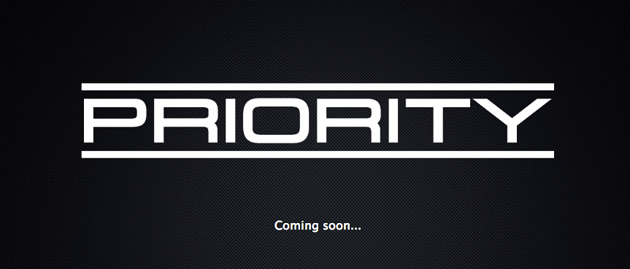 The biggest buzz in EDM over the past two weeks has been the re-launch of Priority Records. It’s an odd choice on the surface to focus on a label once associated with the biggest names in West Coast rap. On a deeper level, however, it’s not. The reviving of an imprint that once put out N.W.A. and Snoop Dogg records now to release Baauer and his ilk speaks volumes about the state of electronic music: Mainly, that it continues to intertwine closer with hip-hop and that Priority, for all its seeming street cred, embodies another iteration of mainstream music encroaching on and usurping part of EDM culture.
The biggest buzz in EDM over the past two weeks has been the re-launch of Priority Records. It’s an odd choice on the surface to focus on a label once associated with the biggest names in West Coast rap. On a deeper level, however, it’s not. The reviving of an imprint that once put out N.W.A. and Snoop Dogg records now to release Baauer and his ilk speaks volumes about the state of electronic music: Mainly, that it continues to intertwine closer with hip-hop and that Priority, for all its seeming street cred, embodies another iteration of mainstream music encroaching on and usurping part of EDM culture.
The greatest dose of press about the re-launch came from Billboard.biz, which reported that both Capitol Music Group and Insurgency Music (made up of Complete Control Management and Control Music Group, which manage and distribute Bloc Party, Dada Life, RL Grime, and Digitalism, among other electronic artists) are reinvigorating Priority but from a different angle.
The disconnect is fairly clear on the web. While Priority’s Facebook page continued to put out hip-hop updates as recent as December 2012, the new website states, “The new Priority records will serve as the preeminent home to the worlds
In preparation for the official August 13 launch, Priority announced its recent signees and upcoming releases: Harry Fraud’s Surf School label, which previously produced for Rick Ross, Wiz Khalifa, French Montana, and Mac Miller, and track “Higher” by Just Blaze and Baauer, featuring Jay Z. However, unlike Priority’s top of the hip-hop world days, when it distributed releases from Rap-A-Lot, Ruthless Records, Death Row Records, Wu-Tang Records, No Limit, and Roc-A-Fella, Capitol plans to put out its albums and singles through Caroline and Universal Music Group.
In one sense, Priority could join the rather large market of EDM labels, from Ultra to Armada to every DJ-managed imprint created solely for his own releases, but others in the hip-hop and EDM spheres have questioned two aspects.

One, that Insurgency’s Michael Cohen is managing the revival. “I don’t come from the hip-hop world,” Cohen told Billboard.biz. “But the genesis of that label was really about supporting the indie level; it broke the mold in terms of working outside the system to bring street-level music to the mainstream without any compromise. And the producer—who has always played a strong role in hip-hop—has become the focal point coming out of the global electronic music space. It’s heralded a paradigm shift in the way music is created, discovered and spread. Our first single ‘Higher’ epitomizes everything we’re trying to do with Priority.”
Considering Priority’s new producer-driven identity, appointing Cohen isn’t a truly awful move. A second aspect, however, makes many question the new identity: the emphasis on “street cred.” Billboard’s piece and the press release repeat phrases like “underground” and “street” and describe notions like tapping into the current youth culture, of which EDM is currently a part of. Priority’s initial 1985 launch went for such a below-the-mainstream marketing initiative, even when EMI picked it up in the early ‘90s, but does tying together an approach from West Coast rap’s faded glory days with Lana Del Rey-level marketing make for relevancy, recognition, and coherency? Does the “youth culture” even remember Priority, which Capitol absorbed in 2004 and then failed to properly re-launch in 2006 with Snoop Dogg behind it? Does Priority embody how EDM adopted trap music, which is now being taken on by mainstream pop artists?
Just a Shell of a Label
As Priority gets its press, the label’s former Senior Executive Vice President of Distributed Labels David Weiner came forward to HipHopDX on July 25 to explain why the re-launch is a poor decision and, for him, a “hard pill to swallow.”
 Weiner criticizes Capitol Music Group chairman/CEO Steve Barnett’s press statement of, “We’re so respectful of Priority’s important role in Capitol’s history. But it was also a street label focusing on music that thrives outside the mainstream.” Weiner explains Priority started its decline when Capitol got involved; previously, EMI bought a 50-percent stake in the company in 1996 and took the other half in 1998, and then EMI merged with Capitol in 2001. Weiner appears pained, or at least bothered by, Capitol’s emphasis on Priority’s brief relationship.
Weiner criticizes Capitol Music Group chairman/CEO Steve Barnett’s press statement of, “We’re so respectful of Priority’s important role in Capitol’s history. But it was also a street label focusing on music that thrives outside the mainstream.” Weiner explains Priority started its decline when Capitol got involved; previously, EMI bought a 50-percent stake in the company in 1996 and took the other half in 1998, and then EMI merged with Capitol in 2001. Weiner appears pained, or at least bothered by, Capitol’s emphasis on Priority’s brief relationship.
Weiner then goes onto say, “However, after reading the press release, the thing that I really had a hard time with was that this label was being headed by a veteran of the EDM world, someone with a successful background in Electronic Dance Music. That was the first thing that threw me for a curve.”
On one hand, while Weiner holds onto the notion of Priority being the “most important hip-hop label on the West Coast in music history,” times have changed, and in terms of where both hip-hop and EDM are headed, you can sum that up in four words: David Guetta and trap.
Guetta’s collaboration with the Black Eyed Peas in 2008 set the stage for mainstream hip-hop, from synth-heavy production to tracks like Nicki Minaj’s “Starships” that work well in hip-hop, pop, and EDM contexts. Even if Guetta’s influence seems forced and overly commercial, trap grew from an exclusively hip-hop production style to semi-underground EDM subgenre to the “new” dubstep in close to two years’ time. Even if trap can’t be defined, it’s hard not deny what a force it has become, from viral videos around “Harlem Shake” to Miley Cyrus’ chart-topping “We Can’t Stop,” featuring production from Mike WiLL Made It.
Based on the little we’ve heard from Priority’s new releases, such as “Higher,” the label just may be trap’s first consistent mainstream-level entry.
Mainstream, Indie, or What?
 The big problem with Priority is, it’s just another Lana Del Rey-like trope: A mainstream label orchestrates its promotion (in this case, it’s Capitol behind Priority) to seem as independent as possible. But while Del Rey put out a seemingly home movie-quality video for “Video Games” and talked about living in a trailer park during interviews, press releases angled her as “Lolita in the ‘hood,” and Interscope assembled a so-exclusive Brooklyn show for the so-manufactured-she’s-unmanufactured pop star, Priority has its cringe-worthy campaign for “Higher,” complete with Instagram photos of graffiti and an online social media campaign that has the same strategy as Katy Perry’s gold truck album announcement.
The big problem with Priority is, it’s just another Lana Del Rey-like trope: A mainstream label orchestrates its promotion (in this case, it’s Capitol behind Priority) to seem as independent as possible. But while Del Rey put out a seemingly home movie-quality video for “Video Games” and talked about living in a trailer park during interviews, press releases angled her as “Lolita in the ‘hood,” and Interscope assembled a so-exclusive Brooklyn show for the so-manufactured-she’s-unmanufactured pop star, Priority has its cringe-worthy campaign for “Higher,” complete with Instagram photos of graffiti and an online social media campaign that has the same strategy as Katy Perry’s gold truck album announcement.
While Priority’s early days consisted of such below-the-mainstream promotion, which, considering all the albums it sold, worked, the new Priority looks like, to borrow a ‘90s term, a bunch of poseurs.
But as much as Del Rey embodies everything wrong with mainstream labels’ relationship with their independent counterparts and supporters, the artificiality of Priority’s re-launch is sadly de rigueur for mainstream music’s takeover of EDM. As Live Nation continues to buy up major events and promoters, a handful of artists flock over to major labels: Daft Punk and Depeche Mode to Columbia, Zedd to Cherrytree, and Avicii, through PRMD, to Universal Music. Or, in the case of Major Lazer, they try out the major label thing and get seriously burned. But while Universal Music collaborating with PRMD to release Avicii’s full-length album just seems like a platform for better distribution, Priority’s campaign to capture the independent nature of most EDM labels just smacks of heavy-handed pandering.




